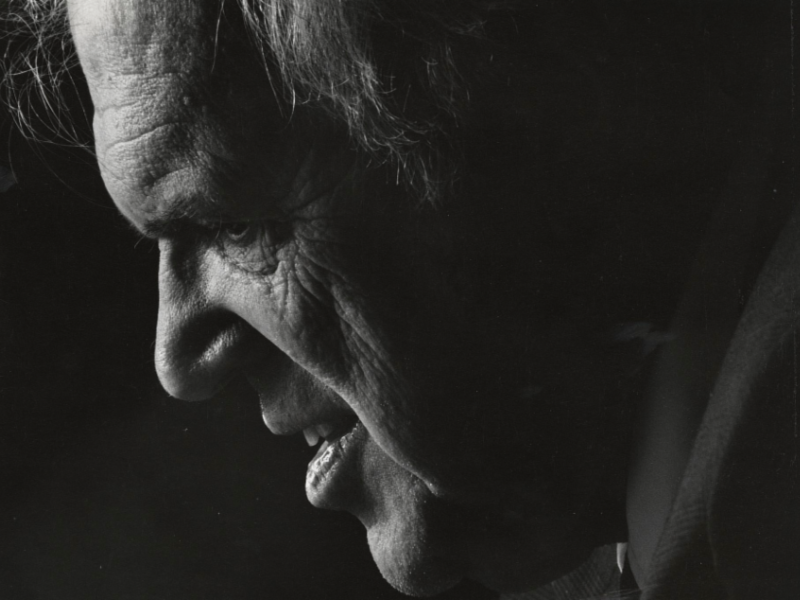Paul Holmes 25 Oct 2021 // 5:47AM GMT

When I first started writing about public relations, there were four titans, individuals who had launched their own firms during what many considered to be the first golden age of public relations, and built the first generation of global public relations agencies, and continued to lead those firms 40 or 50 years after their founding.
Dan Edelman was the first to leave us, dying in 2013 at the age of 92. Al Golin passed away in 2017; he was 87. Harold Burson was 98 when he died last year. And now the last of those four, David Finn, is gone at the age of 100.
David Finn founded Ruder Finn with Bill Ruder in 1948, at a time when public relations was thriving as a profession but had not really established itself as a business. A pioneer in an industry in its infancy. Finn had no roadmap to follow and so he set down his own principles for building and managing a PR firm, insisting that Ruder Finn would work only on projects that he believed in.
His firm was therefore involved in many progressive political causes. During the Kennedy administration, Finn rallied support for the Nuclear Test Ban Treaty. He served on the National Endowment for the Humanities during the Clinton presidency. After the September 11attacks in 2001, Finn helped create ready.gov, part of a national emergency preparedness campaign.
Ruder Finn was one of the first agencies to have a formal code of ethics, and adopted a unique approach to deciding which clients it would represent and what kind of work it would do: an ethics committee would meet every week to discuss any issues the firm was facing, inviting in outsiders ranging from leading academics to rabbis and other religious leaders.
He was also a proponent of “stakeholder capitalism” long before the term became popular, believing that business needed to balance the interests of shareholders with those of employees, customers and communities and setting out his critique of current practices in “The Corporate Oligarch,” published in 1969.
Ruder Finn quickly became a training ground for some of the most exceptional talent in the business. In the 70s, 80s and 90s a host of leading public relations firms were founded by or led by Ruder Finn alums, ranging from global powerhouse GCI Group, where Harriet Mouchly-Weiss presided over the international division, to Kekst and Company, founded by Ruder Finn veteran Gershon Kekst.
But some of the standout talent nurtured by David Finn over his long career belonged to his four children: Kathy Bloomgarden, who now serves as chief executive of Ruder Finn; Peter Finn, who now serves as president and CEO of Finn Partners, a spin-off firm; Amy Binder, who launched her own firm, RF Binder, in 2001; and Dena Merriam, a co-founding partner at Finn Partners who has worked on the United National Climate Conference and other high-profile assignments.
The Finn family now leads three of America’s most respected independent public relations agencies, with combined fee income of close to $250 million—all continuing the legacy of David Finn and committed to many of the same principles that guided him.
Finally, it is worth noting that David Finn had an unusually rich and accomplished life outside of his contributions to the public relations industry.
A lifelong patron of the arts, Finn bought his first camera at age 40 and build a somewhat unlikely second career as a photographer, publishing his first book of photographs in 1962, focusing on the work of note sculptor Gustav Vigeland. The walls of his company’s offices were, from that point on, lined with examples of his work, almost all of it featuring works of art and sculpture and accompanied by quotes and other inspiring thoughts.
David Finn was the last surviving member of a generation of American entrepreneurs whose vision and ambition shaped the global public relations industry as we know it today. His passing marks the end of an epoch.


































.jpg)





.tmb-135x100.jpg)











